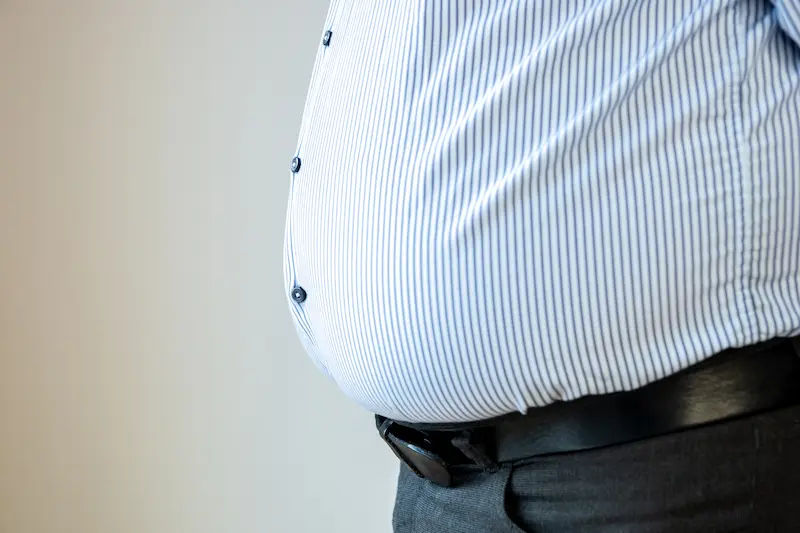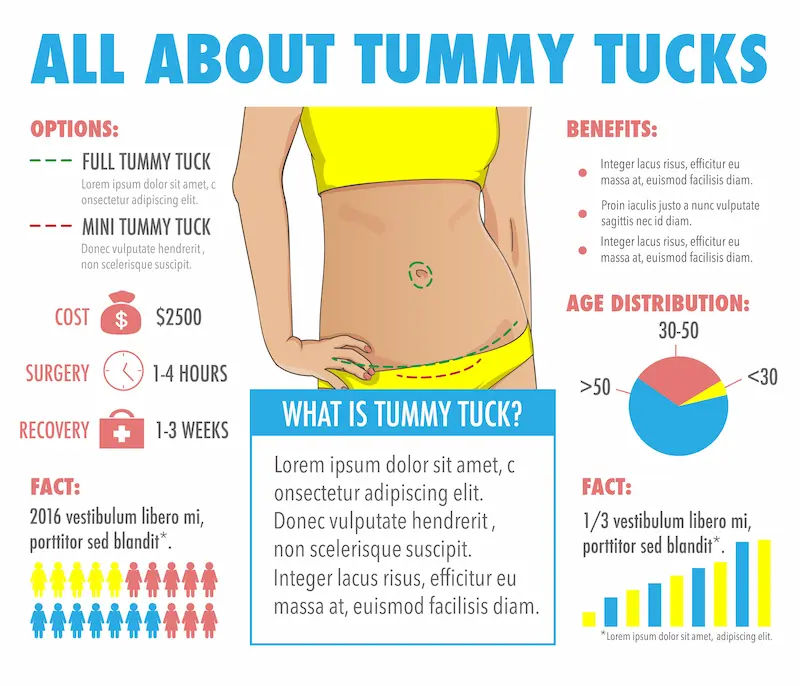Guide to Childhood Obesity
Discover the causes, health risks, and practical family-centred solutions for childhood obesity to help your child build lifelong healthy habits.

Written by Dr. Siri Nallapu
Reviewed by Dr. Shaik Abdul Kalam MD (Physician)
Last updated on 13th Jan, 2026

Introduction
Childhood obesity is one of the most pressing public health challenges of the 21st century. It's a complex condition where a child is significantly above a healthy weight for their age and height. For parents, it can be a source of worry and confusion, often filled with conflicting advice. This isn't about aesthetics or placing blame; it's about nurturing our children's long-term health and well-being. Childhood obesity can lead to physical issues like type 2 diabetes and high blood pressure, once considered adult diseases, as well as profound psychological effects like low self-esteem and depression. But here's the most important message: it is largely preventable and manageable with a supportive, family-centred approach. This guide will walk you through the root causes, the real-world health risks, and, most importantly, practical, compassionate strategies to help your child build a foundation for a healthy life. We'll move beyond quick fixes and focus on sustainable habits that benefit the entire family.
What Exactly is Childhood Obesity? Beyond the Numbers
When we talk about childhood obesity, we're referring to a medical condition that affects children and adolescents. It's
particularly concerning because the extra pounds often start kids on a path to health problems that were once confined
to adults, such as heart disease and diabetes. Understanding how it's measured is the first step.
Understanding BMI-for-Age: A Tool, Not a Label
Unlike adult BMI, which uses a straightforward calculation, assessing weight in children is more nuanced. Doctors use
paediatric BMI percentiles, which plot a child's BMI against national data for children of the same age and sex.
- Healthy weight: 5th to 85th percentile
- Overweight: 85th to 95th percentile
- Obese: At or above the 95th percentile
It's crucial to remember that BMI is a screening tool, not a diagnostic one. A child with a high muscle mass, for example, might have a high BMI but not be obese. A healthcare professional provides a complete assessment.
The Difference Between Overweight and Obesity
While often used interchangeably, "overweight" and "obesity" define different ranges of excess body weight. Overweight
means a child is heavier than what is considered healthy for their height, while obesity signifies a more serious degree of
excess body fat. Both require attention, but obesity carries a higher risk for associated health complications. The goal is
always to slow the rate of weight gain, allowing the child to "grow into" their weight, rather than drastic weight loss.
The Root Causes: Why Childhood Obesity is on the Rise
There's no single cause for the rise in childhood obesity. It's a perfect storm of genetic, behavioural, and environmental
factors that have shifted over generations.
Dietary Habits: The Role of Processed Foods and Sugary Drinks
The modern diet is a primary driver. Easy access to high-calorie, low-nutrient junk food and sugar-sweetened beverages
has fundamentally changed how children eat. These foods are often packed with empty calories, leading to weight gain
without providing essential vitamins and minerals. A single can of fizzy drink can contain up to 10 teaspoons of sugar,
contributing significantly to daily calorie intake without any nutritional benefit.
Consult a Paediatrician for the best advice
The Sedentary Lifestyle: Screen Time vs. Green Time
Children today are growing up in a digital world. The average child spends hours each day in front of screens—watching TV, playing video games, or using smartphones. This "screen time" has replaced active play, or "green time." This sedentary behaviour not only burns fewer calories but is also often accompanied by mindless snacking on unhealthy foods.
Genetic, Hormonal, and Socioeconomic Factors
While lifestyle is key, genetics can predispose a child to weight gain. Rarely, hormonal conditions like an underactive
thyroid can contribute. Furthermore, socioeconomic factors play a significant role. Healthy food can be more expensive and less accessible in certain neighbourhoods ("food deserts"), and safe places for physical activity may be limited.
The Real Cost: Health Risks Associated with Childhood Obesity
The impact of childhood obesity extends far beyond the scale. It can affect nearly every system in a child's body and mind.
Immediate Physical Health Problems
Children with obesity are at a higher risk for:
- Type 2 Diabetes: A chronic condition that affects how the body processes blood sugar.
- Asthma and Sleep Apnoea: Breathing problems are more common and can be more severe.
- Joint Pain and Musculoskeletal Discomfort: The extra weight stresses growing bones and joints.
- Early Puberty or Menstrual Irregularities: Hormonal imbalances can be triggered by excess body fat.
Psychological and Social Impacts
The emotional effects of childhood obesity can be devastating. Children may face bullying, social isolation, and low
self-esteem. This can lead to anxiety, depression, and poor academic performance. The stigma associated with weight
can create a cycle of emotional eating, further exacerbating the problem.
Long-Term Consequences Carried into Adulthood
Perhaps most alarming is the long-term outlook. Children with obesity are much more likely to become adults with
obesity, facing a higher lifetime risk of severe conditions like heart disease, stroke, and certain cancers. Addressing the
issue in childhood is the most effective way to break this cycle.
Taking Action: A Family-Centred Approach to Prevention and Management
Tackling childhood obesity is not about putting a child on a restrictive diet. It's about the entire family adopting
healthier habits together. The most successful strategies are positive, supportive, and gradual.
Building a Balanced Plate: Nutrition Strategies That Work
Focus on what you can add to your diet, not just what to take away.
- Increase Fruits and Vegetables: Aim to fill half of every plate with colourful fruits and veggies.
- Choose Whole Grains: Swap white bread, pasta, and rice for whole-grain versions.
- Prioritise Lean Protein: Include sources like chicken, fish, beans, and lentils.
- Limit Sugary Drinks: Make water the primary beverage for the whole family.
Smart Swaps: Making Healthy Choices Easier
Small changes can make a big difference over time.
- Instead of fizzy drinks -> Try sparkling water with a squeeze of lemon or a few berries.
- Instead of potato crisps -> Offer apple slices with peanut butter or air-popped popcorn.
- Instead of sugary cereal -> Choose porridge oats topped with fruit and a drizzle of honey.
Getting Active as a Family: Fun Ways to Move More
Physical activity should be fun, not a chore. The goal is 60 minutes of moderate-to-vigorous activity daily.
- Family Walks or Bike Rides: Make it a daily or weekly ritual.
- Active Games: Turn off the screens and play tag, dance in the living room, or go to a park.
- Find a Sport They Love: Encourage participation in sports, but don't force it. The key is finding an activity they enjoy.
The Importance of Sleep and Stress Management
Often overlooked, sleep and stress are critical. Children who don't get enough sleep are at a higher risk for obesity.
Hormones that regulate appetite are disrupted by sleep deprivation. Similarly, teach children healthy ways to manage
stress, like talking about their feelings or engaging in quiet activities, instead of turning to food for comfort.
When to Seek Professional Help
While family meal planning for health and increased activity are excellent first steps, there are times when professional
guidance is essential. If you are concerned about your child's weight, rapid weight gain, or related symptoms like
extreme fatigue or frequent thirst, consult a paediatrician. They can rule out underlying medical causes, provide
accurate growth assessments, and offer tailored advice. For ongoing support, a registered dietitian can create a personalised nutrition plan. If your child shows signs of anxiety, depression, or disordered eating related to their weight, seeking help from a child psychologist or counsellor is crucial. You can book an online consultation with a specialist from Apollo24|7 to discuss your concerns conveniently from home.
Conclusion
Navigating the challenges of childhood obesity requires patience, compassion, and a long-term perspective. It's not about achieving a perfect number on the scale but about fostering a healthy relationship with food and activity that will last a lifetime. Remember, you are not alone in this journey. By creating a supportive home environment where healthy choices are the easy choices, you empower your child to thrive. Start with one or two small changes this week—perhaps replacing sugary drinks with water or committing to a family walk after dinner. Every positive step counts. Your commitment today is an investment in your child's vibrant and healthy future.
Consult a Paediatrician for the best advice
Consult a Paediatrician for the best advice

Dr. Shubhadeep Das
Paediatrician
17 Years • MBBS, MD (Paediatrics), FRCPCH (London), FRCP(Edinburgh), FRCP (London), EPIC Diploma, Fellowship in Paediatric Intensive care & Cardiac Intensive care (Canada and UK ).
Kolkata
Dr Shubhadeep Das's Child care clinic, Kolkata
(150+ Patients)

Dr. Debangana Chatterjee
Paediatrician
6 Years • MBBS, MD, DNB (Paed.)
Kolkata
MCR SUPER SPECIALITY POLY CLINIC & PATHOLOGY, Kolkata

Dr. Suhena Sengupta
Paediatrician
15 Years • MBBS, IPPC
Kolkata
MCR SUPER SPECIALITY POLY CLINIC & PATHOLOGY, Kolkata

Dr. Dikpati Mukherjee
Paediatrician
12 Years • MBBS, MD (Paed.)
Kolkata
MCR SUPER SPECIALITY POLY CLINIC & PATHOLOGY, Kolkata

Dr. Fazala Mehnaz
Paediatrician
15 Years • MBBS, DCH, PGC (PEM), Fellowship (Neonatal ICU), MCHA
Chinagadila
Apollo Hospitals Health City Unit, Chinagadila
(250+ Patients)
Consult a Paediatrician for the best advice

Dr. Shubhadeep Das
Paediatrician
17 Years • MBBS, MD (Paediatrics), FRCPCH (London), FRCP(Edinburgh), FRCP (London), EPIC Diploma, Fellowship in Paediatric Intensive care & Cardiac Intensive care (Canada and UK ).
Kolkata
Dr Shubhadeep Das's Child care clinic, Kolkata
(150+ Patients)

Dr. Debangana Chatterjee
Paediatrician
6 Years • MBBS, MD, DNB (Paed.)
Kolkata
MCR SUPER SPECIALITY POLY CLINIC & PATHOLOGY, Kolkata

Dr. Suhena Sengupta
Paediatrician
15 Years • MBBS, IPPC
Kolkata
MCR SUPER SPECIALITY POLY CLINIC & PATHOLOGY, Kolkata

Dr. Dikpati Mukherjee
Paediatrician
12 Years • MBBS, MD (Paed.)
Kolkata
MCR SUPER SPECIALITY POLY CLINIC & PATHOLOGY, Kolkata

Dr. Fazala Mehnaz
Paediatrician
15 Years • MBBS, DCH, PGC (PEM), Fellowship (Neonatal ICU), MCHA
Chinagadila
Apollo Hospitals Health City Unit, Chinagadila
(250+ Patients)
More articles from Obesity
Frequently Asked Questions
What is the most effective way to prevent childhood obesity?
The most effective strategy is a holistic, family-based approach. This includes modelling healthy eating habits, ensuring regular physical activity for everyone, limiting screen time, and creating a home environment where nutritious food is readily available.
Can a child 'grow out of' being overweight?
Sometimes, with a focus on healthy habits, a child can 'grow into' their weight as they get taller. This involves slowing the rate of weight gain while allowing for normal height growth. However, without intervention, overweight children often become overweight adults.
How can I talk to my child about their weight without hurting their feelings?
Focus on health and well-being, not appearance. Use positive, collaborative language. Say things like, 'Let's all try to be healthier and have more energy as a family,' rather than singling the child out. Emphasise the positive benefits of healthy habits, like feeling stronger or being able to play longer.
Are there specific healthy snacks for kids you recommend?
Yes! Great options include yoghurt with berries, apple slices with peanut butter, carrot sticks with hummus, a small handful of nuts (if no allergy), cheese sticks, or whole-grain crackers with avocado.
How much physical activity does a child really need?
The CDC recommends that children and adolescents ages 6 to 17 get at least 60 minutes of moderate-to-vigorous physical activity daily. This can be broken into shorter sessions throughout the day.




